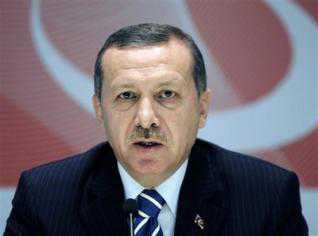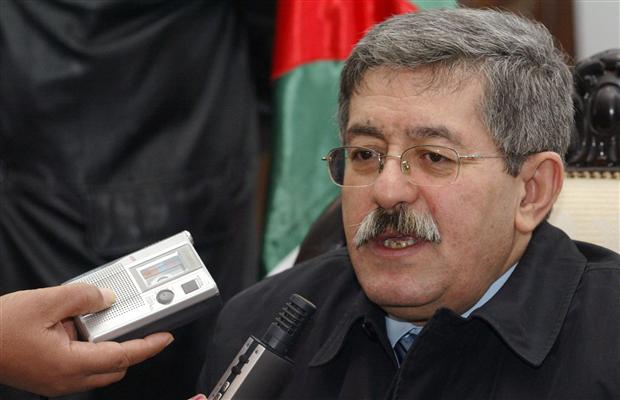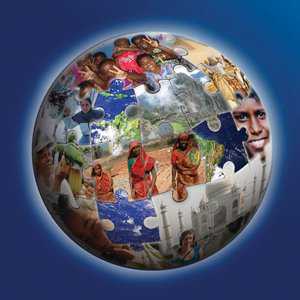A diplomatic process designed to normalise relations between Armenia and Turkey led to the signing of two protocols in 2009. Its failure is rooted in the miscalculations of both sides, says Vicken Cheterian.
About the author
Vicken Cheterian is a journalist and political analyst who works for the non-profit governance organisation CIMERA, based in Geneva. He is the author of War and Peace in the Caucasus: Russia’s Troubled Frontier (C Hurst, 2009; Columbia University Press, 2009), and From Perestroika to Rainbow Revolutions: Reform and Revolution After Socialism (C Hurst, fortcoming, 2012)
The genocide museum in Yerevan lies north of the Armenian capital at the top of a hill called Tsitsernakapert. The physical effort of walking to the summit is an appropriate spur to the visitor to reflect on the hardship of hundreds of thousands of Ottoman citizens of Armenian origin, who in 1915 and subsequent years were forced by their state to walk to the Syrian desert, there or on the way to die of hunger, exhaustion or by an act of murder. Today, the end-point is the sight of a sober, forty-four-metre high stele pointing skywards, as if claiming justice; and beside it, a circular monument of twelve basalt slabs that both open to and protect the eternal flame.
On 24 April each year, the day of commemoration of the Armenian genocide, thousands of people gather at Tsitsernakapert to place a flower at the monument – and then walk down the other side of the hill where, on a clear day, there is a magnificent view of Mount Ararat, with its white glaciers as if hanging from heaven. It is a poignant sight, for Ararat is both the visible totem of the Armenians yet remains unreachable to them, since it lies on the other side of the border that divides Armenia from Turkey. The two countries’ 300-kilometre-long frontier, which runs only 40 kilometres from the centre of Yerevan, is closed: the last closed border of the cold war.
I went to Tsitsernakapert to visit Hayk Demoyan, the director of the genocide museum which is part of the cluster of monuments on the site. “This museum tells the history of not only the Armenian people, but also that of the Turkish people”, Demoyan tells me. He refers to the the diplomatic exchanges since 2008 that sought to normalise Armenian-Turkish relations, saying that he expected these to prompt “a flow of Turkish visitors”. It has proved a vain hope. “The international community, especially the Americans, did not exert enough sustained pressure on Turkey to open up the border”, Demoyan says. “Now the process is at a dead-end”.
From blockade to diplomacy
The complicated relationship between Armenia and Turkey is rooted in the events of the great war of 1914-18, when the Ottoman administration deported en masse its Armenian citizens from their towns and villages in Anatolia, the prelude to the anihilation of almost the entire Armenian population of the empire. The legacy of this bitter history was such that only in the early 1990s, amid the break-up of the Soviet Union and Armenia’s attempts to secure its independence, did a chance arise for Armenia and Turkey to move beyond deep antagonism and create normal relations.
At the time, Armenia’s new political leadership was trying to escape Moscow’s influence and prepared to establish diplomatic relations with Turkey without preconditions. But the escalation of the conflict in Nagorno-Karabakh, an enclave inside the new state of Azerbaijan with a majority Armenian population, posed a major obstacle to this course. Turkey’s then leadership supported Azerbaijan in this conflict, refused to open diplomatic links, and (in 1993) joined Azerbaijan in imposing an economic blockade on land-locked Armenia in an effort to force it to end its backing for the Karabakh Armenians’ quest for self-determination.
A frozen conflict ensued, until the war between Russia and Georgia in August 2008 overturned the region’s geopolitical map. Ankara saw a chance to address this anomaly of its Caucasus policy. On 8 September 2008, Turkey’s head of state Abdüllah Gül visited Yerevan during a football world-cup qualifying match between the two national teams, and this was followed by a series of diplomatic meetings where practical steps were discussed.
In fact, secret diplomatic talks had been held in Bern since 2007, mediated by the Swiss foreign ministry. The chain of diplomatic contacts culminated in the signing in Zurich on 10 October 2009 of two “protocols”, dedicated to establishing diplomatic relations and on opening the borders. The ceremony, hosted by Swiss foreign minister Micheline Calmy-Rey, was attended by international dignitaries such as United States secretary of state Hillary Clinton and Russian foreign minister Sergei Lavrov.
“What is ironic is the fact that during the cold war this border was not so hermeticaly closed as it is now. At the time, trains travelled regularly between Kars and Leninakan [now Gumri]”, says Tatul Hakobyan, a Yerevan-based author who is finishing a book on Armenia-Turkey relations. Hakobyan’s interpretation of the failure of dialogue is interesting: “The expectations of the various sides were based on wrong calculations. The Armenian side thought that it was possible to change the status quo on Armenian-Turkish relations without changing the status quo on the Karabakh issue. Turkey thought that dialogue with Armenia will lead to Armenian concessions on Karabakh. And the international community did not pay enough attention to details.”
The protocol-signing process in Zurich was fraught: the Turkish side wanted a public declaration linking the protocols with the Karabakh negotiations process, leading the Armenian delegation to boycott the ceremony, meaning that in the end there was no declaration. “In Zurich, the sides showed that they were not ready to compormise. Turkey wanted Armenian concessions on Karabakh, not just on the question of genocide and fixing the current border”, says Hakobyan.
The results of failure
When the process began, both presidents took risks in the hope of bringing peace and stability to their countries. For Armenia’s Serge Sarkissian, entering a dialogue with Turkey was a particularly bold step; he was already challenged by a powerful domestic opposition that contested the legitimacy of his election, and the diplomatic move so angered the Tashnaktsutyun party (which has a large diaspora base) that it left the government coalition in protest. The signing of the protocols also created a schism between Yerevan and Armenian communities abroad, which Sarkissian experienced directly when, during a foreign tour of diaspora communities, he was faced by demonstrations in Paris, Los Angeles and Beirut.
For Turkey’s diplomacy, the policy of rapprochement with Armenia was part of a wider effort to ease tensions in the Caucasus’s several conflict-zones, especially that of Karabakh. They believed that ameliorating Ankara’s relations with Armenia would facilitate negotiations between Armenia and Azerbaijan. Instead, they were confronted by a vehement reaction from Azerbaijan that accused Turkey of betraying Baku’s interests. Baku threatened to suspend relations with Ankara and to cancel future hydrocarbon deals. As a result, the Turkish leadership insisted that Armenia made concessions over Karabakh on the grounds that this would enable the protocols to be ratified by the Turkish parliament. Ankara was here not just seeking measures additional to those foreseen in the protocols, but reverting to its earlier position that Armenian-Turkish relations can only move forward if Armenia complies with Azerbaijani demands on the Karabakh conflict.
Thus, both Armenia and Turkey entered the process of negotiations without anticipating all the moves they might be expected to make, and were surprised along the way. Yerevan’s diplomats proceeded to sign the protocols without consulting diaspora communities, amid protests by diaspora communities against the president of Armenia for the first time since independence. Ankara similarly misjudged its capacity to resist opposition from Baku, and even a reversal of its policy has not allayed Azerbaijani suspicions.
The failure of the protocols is so great that it will have long-term consequences. “The failure of Armenian-Turkish negotiations will harden the Armenian position on Karabakh negotiations”, according to Ara Tadevosyan, the director of the Media Max news agency in Yerevan. Even worse, what started as personal initiatives and cautious trust has turned into mistrust. Today, the Armenian leadership feels deceived by its Turkish equivalent: it signed two protocols for which it had already paid a political price back home, only to be asked to make further concessions on Nagorno-Karabakh.
This perceived deception will harden Yerevan’s position in relation to Turkey, only three years before the centenary commemoration of the Armenian genocide in 2015. Turkey’s official reaction to the proposed outlawing of the denial of genocide in France shows that attitudes on its side are becoming even more intransigent. The hopes of 2009 look ever more distant.






